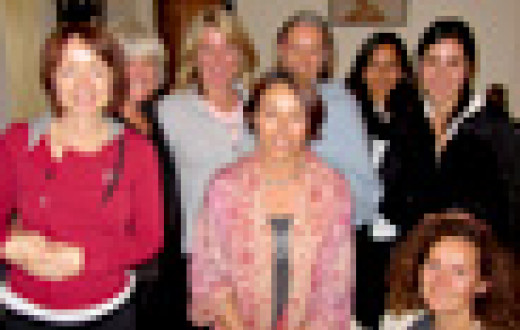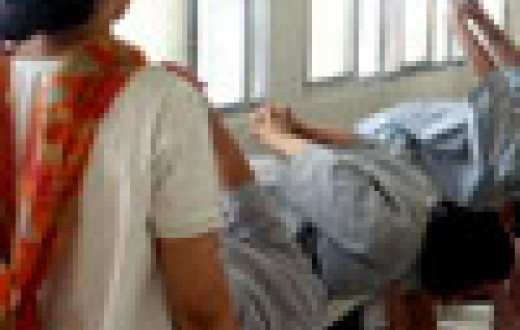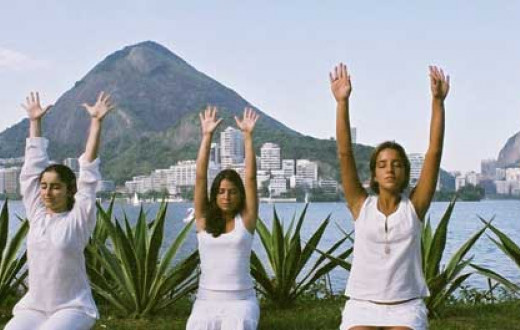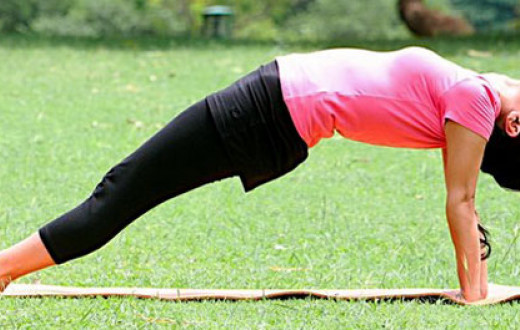Born and raised as a Catholic, Santiago Barrenechea has been meditating practically since he was 14 years old. Having realized how much meditation has benefited his own life, he has taken up the task of teaching meditation to people from different countries, religions, and all walks of life.
Santiago strongly believes that meditation is universal and goes beyond all religions. He says if even food these days has become so universal, there is no way meditation can be tagged as a religious activity. For those who still believe meditation is religious, Santiago breaks this myth by sharing his views on why everyone should meditate.
In conversation with Santiago…
Q1 – These days, a lot of people believe that meditation is a religious activity? Could you please break this myth by sharing how meditation goes beyond all religions?
Santiago : Well, I am Catholic. I was born and raised as a Catholic. But when I started meditating, I never felt it was against my religion. Infact, I felt it made me a better person and a better Catholic.
These days even food (which does actually belong to some place or country) goes beyond all borders and has become so universal. Ask yourself, don’t you eat Chinese food sitting here in America or India? Then meditation, which does not even belong to any country or religion or to any particular set of people, how can that not be universal?
And then who does not need peace of mind? Hindu or Christian, from India or from Germany—I believe everyone does. I say forget about everyone, ask yourself, don’t you want to be a better person? Don’t you want to learn the skill of handling relationships? Meditation is known to have so many benefits, so if you do not meditate, you are losing out on all the benefits.
Sometimes, the way people meditate could be different at different places. For instance, Catholics have certain types of prayers that are like meditation to them. But meditation is definitely universal.
Q2 – Since you mentioned that meditation has many benefits, could you talk about how meditation can complement one’s daily activities?
Santiago : Let’s take an example. Whether you are a professional working or a housewife cooking, you need to focus on whatever you do. That’s where meditation helps. To focus, you need to be peaceful and calm, else you cannot work. And that’s what meditation does, makes you peaceful.
Have you observed how your mind keeps swinging between thoughts related to the past and future? To be able to focus on anything, you need to be in the present moment, and that’s the skill you develop with regular practice of meditation. It simply makes you better in your role.
Just recently, I taught a course for some nuns in Argentina. After they meditated, they felt more connected to their belief systems and felt they were able to provide better service to people, which is their main role.
Here's another way to look at this:how do you feel when you take a shower every morning? There comes a fresh zeal to start your day, right? In the same way, if we shower our mind, clean our mind every morning, imagine how fresh we willfeel? And then when we go to work, we’ll feel so good. Meditating is like giving a shower to our mind.
I am into advertising, which is a very creative field. With the regular practice of meditation, I have become so much better at my work – more creative and innovative in my role.
Q3 – It is said that If every eight-year-old in this world is taught how to meditate, we will be able to eliminate violence from the world. Could you talk about why is it so important for everyone to meditate these days?
Santiago : I think it’s very true.
Meditation gives you peace of mind. If you are peaceful, your mind is peaceful. A peaceful mind will not hurt anybody. Today, all the violence in the world—whether in the form of war between countries or fights among family members—is because people’s minds are not peaceful. People are searching for peace and that’s why sometimes they end up drinking and smoking. And meditation can give them the peace that they are looking for.
If every eight-year-old learns to meditate, they will grow into fine, strong, peaceful adults and then there would be no violence.
Q4 – You have taken a lot of courses in Argentina, which is mainly Catholic. How open are the people of Argentina to meditation?
Santiago : In Argentina, I think people are becoming more open to meditation, especially now that they are becoming more aware of its benefits.
Infact, last year we organized a huge meditation event in Argentina, where almost 1,50,000 people gathered together to meditate. The experiences that people shared were amazing.
Now we have guided meditations every month, where people (absolutely anyone) are invited to come and meditate at the different Art of Living Meditation Centers we have.
Q5 – Can you share the experiences of people from different backgrounds that you have taught?
Santiago : Well, I have taught meditation to people in slums, jails, corporate houses, to housewives ,and even to flood victims. Everyone has shared similar experiences – having felt calmer and more peaceful.
The prisoners I have taught have shared that if they would have learned to meditate earlier, they would probably have not committed the crimes they did. People in prison are normally full of anger, aggression, regret, and frustration, but they shared that when they meditated they did not feel as angry as they did before.
Q6 – Would you like to leave our readers a message?
Santiago : I’d just like to say that meditation is universal. If you think meditation is a religious activity and that’s something stopping you from learning how to meditate, I think it’s time for you to rethink.
You must try it! It will add an X factor to your life.
I’d like to invite each one of you reading this interview to come and experience an Online Guided Meditation for yourself and see how peaceful you feel in just 20 minutes.
Interview taken by Divya Sachdev



























